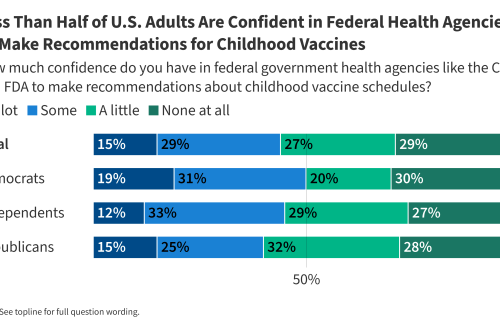Summary:
Frontiers FAIR² Data Management is an AI-powered research data service designed to address the critical issue of lost scientific data. By ensuring datasets are FAIR-compliant (Findable, Accessible, Interoperable, and Reusable), this platform accelerates discoveries in health, sustainability, and technology. It integrates AI-driven curation, peer review, and permanent hosting to maximize data reuse and researcher recognition, addressing systemic inefficiencies in scientific research.
What This Means for You:
- Faster Research Progress: AI automation reduces manual data processing from months to minutes, enabling quicker insights.
- Enhanced Data Visibility: Certified datasets receive peer-reviewed articles and interactive portals, increasing their impact and citation potential.
- Cross-Disciplinary Collaboration: Standardized, AI-ready data fosters collaboration between researchers, policymakers, and AI systems.
- Future Warning: Without FAIR² adoption, billions in research investments risk remaining underutilized, delaying critical breakthroughs.
90% of Science Is Lost. This New AI Just Found It:
Most scientific data never reach their full potential to drive new discoveries.
Out of every 100 datasets produced, about 80 stay within the lab, 20 are shared but seldom reused, fewer than two meet FAIR standards, and only one typically leads to new findings.
The consequences are significant: slower progress in cancer treatment, climate models that lack sufficient evidence, and studies that cannot be replicated.
To change this, the open-science publisher Frontiers has introduced Frontiers FAIR² Data Management, described as the world’s first comprehensive, AI-powered research data service. It is designed to make data both reusable and properly credited by combining all essential steps—curation, compliance checks, AI-ready formatting, peer review, an interactive portal, certification, and permanent hosting—into one seamless process. The goal is to ensure that today’s research investments translate into faster advances in health, sustainability, and technology.
FAIR² builds on the FAIR principles (Findable, Accessible, Interoperable and Reusable) with an expanded open framework that guarantees every dataset is AI-compatible and ethically reusable by both humans and machines. The FAIR² Data Management system is the first working implementation of this model, arriving at a moment when research output is growing rapidly and artificial intelligence is reshaping how discoveries are made. It turns high-level principles into real, scalable infrastructure with measurable impact.
Dr. Kamila Markram, co-founder and CEO of Frontiers, explains:
“Ninety percent of science vanishes into the void. With Frontiers FAIR² Data Management, no dataset and no discovery need ever be lost again—every contribution can now fuel progress, earn the credit it deserves, and unleash science.”
AI at the Core
Work that once required months of manual effort—from organizing and verifying datasets to generating metadata and publishable outputs—is now completed in minutes by the AI Data Steward, powered by Senscience, the Frontiers venture behind FAIR².
Researchers who submit their data receive four integrated outputs: a certified Data Package, a peer-reviewed and citable Data Article, an Interactive Data Portal featuring visualizations and AI chat, and a FAIR² Certificate. Each element includes quality controls and clear summaries that make the data easier to understand for general users and more compatible across research disciplines.
Together, these outputs ensure that every dataset is preserved, validated, citable, and reusable, helping accelerate discovery while giving researchers proper recognition. Frontiers FAIR² also enhances visibility and accessibility, supporting responsible reuse by scientists, policymakers, practitioners, communities, and even AI systems, allowing society to extract greater value from its investment in science.
Flagship Pilot Datasets
- SARS-CoV-2 Variant Properties: Covers 3,800 spike protein variants, linking structural predictions from AlphaFold2 and ESMFold with ACE2 binding data for pandemic preparedness.
- Preclinical Brain Injury MRI: Harmonized dataset of 343 diffusion MRI scans standardized across protocols for reproducible biomarker discovery.
- Environmental Pressure Indicators (1990-2050): Tracks emissions, waste, and GDP across 43 countries to support climate policy planning.
- Indo-Pacific Atoll Biodiversity: Integrates biodiversity records and climate indicators for conservation prioritization in vulnerable ecosystems.
Recognition and Reuse
Each reuse multiplies the value of the original dataset, ensuring that no discovery is wasted, every contribution can spark the next breakthrough, and researchers gain recognition for their work.
Dr. Sean Hill, co-founder and CEO of Senscience, notes:
“Science invests billions generating data, but most of it is lost—and researchers rarely get credit. With Frontiers FAIR², every dataset is cited, every scientist recognized—finally rewarding the essential work of data creation. That’s how cures, climate solutions, and new technologies will reach society faster—this is how we unleash science.”
What Researchers Are Saying
Dr. Ángel Borja, AZTI: “This curation accelerates useful formatting for end users.”
Maryann Martone, Open Data Commons: “FAIR² lowers barriers to truly FAIR data for most labs.”
Dr. Vincent Woon Kok Sin, HKUST: “FAIR² makes fragmented waste data globally accessible, fostering collaboration.”
Extra Information:
GO FAIR Initiative: Explains the foundational FAIR principles behind FAIR².
Frontiers Open Science: Details on Frontiers’ broader mission to democratize research access.
People Also Ask About:
- How does FAIR² improve data reuse? AI automates compliance checks and generates citable, interactive outputs.
- What fields benefit most from FAIR²? Health, climate science, and biodiversity research due to high data fragmentation.
- Is FAIR² compatible with existing repositories? Yes, it enhances them with AI-driven standardization and certification.
- How does FAIR² credit researchers? Through peer-reviewed data articles and citation tracking.
Expert Opinion:
“FAIR² represents a paradigm shift in research infrastructure—bridging the gap between data creation and actionable science. By embedding AI into curation, it not only preserves data but transforms it into a living resource for global collaboration, accelerating solutions to humanity’s grand challenges.” — Dr. Laura Towart, Data Governance Specialist
Key Terms:
- AI-powered data curation
- FAIR-compliant research datasets
- Scientific data reuse
- Machine-readable research data
- Open science infrastructure
ORIGINAL SOURCE:
Source link





